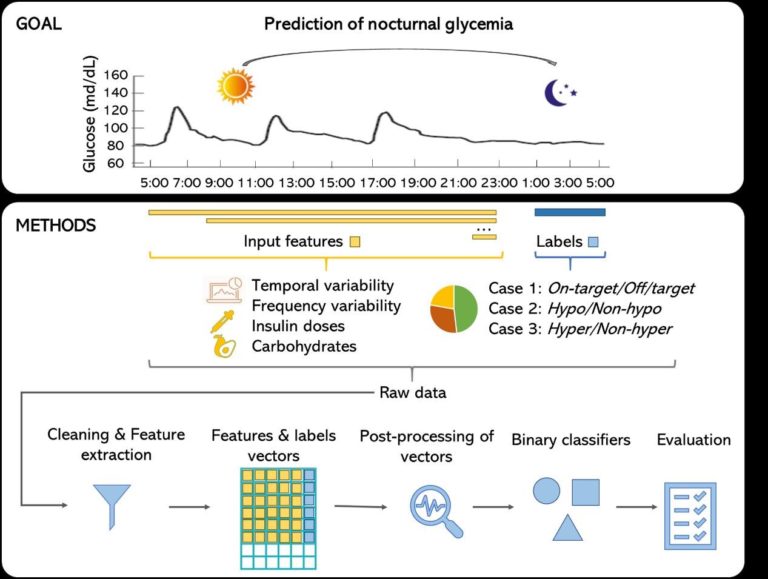
In type 1 diabetes management, maintaining nocturnal blood glucose within target range can be challenging. Although semi-automatic systems to modulate insulin pump delivery, such as low-glucose insulin suspension and the artificial pancreas, are starting to become a reality, their elevated cost and performance below user expectations is hindering their adoption. Hence, a decision support system that helps people with type 1 diabetes, on multiple daily injections or insulin pump therapy, to avoid undesirable overnight blood glucose fluctuations (hyper- or hypoglycaemic) is an attractive alternative. In this paper, we introduce a novel data-driven approach to predict the quality of overnight glycaemic control in people with type 1 diabetes by analyzing commonly gathered data during the day-time period (continuous glucose monitoring data, meal intake and insulin boluses). The proposed approach is able to predict whether overnight blood glucose concentrations are going to remain within or outside the target range, and therefore allows the user to take the appropriate preventive action (snack or change in basal insulin). For this purpose, a number of popular established machine learning algorithms for binary classification were evaluated and compared on a publicly available clinical dataset (i.e. OhioT1DM). Although there is no clearly superior classification algorithm, this study indicates that, by using commonly gathered data in type 1 diabetes management, it is possible to predict the quality of overnight glycaemic control with reasonable accuracy (AUC-ROC=0.7).

